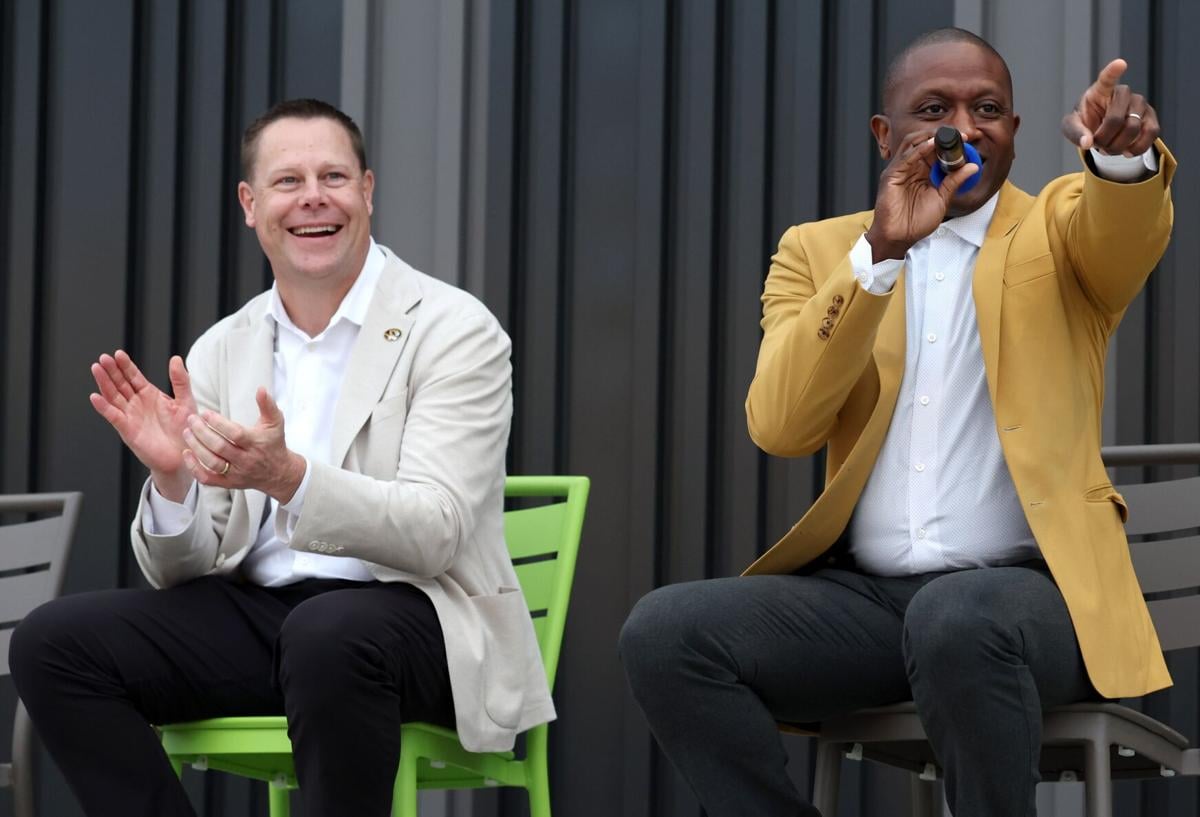COLUMBIA, Mo. — A couple of months ago, Missouri athletics went to Washington.
Posing for a photo in front of the U.S. Capitol building after visiting with the state’s congressional delegation were Mizzou athletics director Laird Veatch, men’s basketball coach Dennis Gates, women’s basketball coach Kellie Harper and wrestling coach Brian Smith. They’d stopped by, according to a social media post announcing their visit, “to discuss initiatives to help navigate the future of college athletics.”
Since that early April trip to D.C., college sports’ path forward cleared mildly with the approval of the landmark House v. NCAA settlement. But Veatch, like others in his position, wants to see more.
The Tigers’ AD wants to see Congress step in.
It’s a view grounded partially in pragmatism, that without federal intervention rules will continue to be bent and broken, and idealism, that a bipartisan fix for college sports could come to fruition. Lawmakers have recently been discussing what could go in such a bill, perhaps setting it up for a run through the U.S. House and Senate.
People are also reading…
The House settlement “is only going to be as successful as the (schools) decide to make it,” Veatch said last week. “If we are committed to it and give it a chance, then that’s a starting place. Will there be lawsuits? Will there be continued outside pressures? Absolutely. That’s why it’s a step, but it’s not the last or final step.
“It’s also why we need congressional support, why we need to have at some level federal action that gives us a level of protection so we can continue to move forward.”
What could “congressional support” look like? It’s still to be determined, but discussions and drafts stemming from three House of Representatives committees lay out the blueprint.
At a macro level, there would be a ban on college athletes becoming classified as employees, wide-ranging antitrust protection for the NCAA and major conferences, and clarity that federal legislation would overrule the patchwork quilt of state laws which often conflict with NCAA rules.
A little more in the weeds would be clauses codifying aspects of the House settlement, requiring agents to register and changes to transfer and eligibility policies.
Such a bill, if it comes together in that form, would be friendly to the NCAA and its goals. Veatch declined to say whether he backs the ideas included in a draft of the so-called S.C.O.R.E. Act (“Student Compensation and Opportunity through Rights and Endorsements Act”), given the timing of its arrival with the sweeping changes brought about by the House settlement.
“I wouldn’t speak to the specifics, just because I’m not up to speed enough to truly do that,” Veatch said. “I am encouraged that we are continuing to have real dialog and we’re making real progress in that area. I am convinced that we’re going to need that type of action and support for us to really get to a truly stable environment and be able to protect the future of college athletics — particularly our Olympic sports — as we move this process forward.”
From here, it looks like it’ll take time and bipartisan agreement for any concrete congressional action to come about. The present state of Congress suggests a bill would need 60 votes to avoid a Senate filibuster, and getting there requires crossing the aisle for support.
And that’s not a simple thing. Party lines might well form around the issue of college athletes as employees and antitrust protections for the NCAA.
To set up the points of division and stakes for Congress’ discussions, just look at a comment from U.S. Rep. Yvette Clarke, a Democrat from New York:
“With the recent settlement in House v. NCAA, it’s more important than ever that we reach some consensus on what exactly our role is here,” Clarke said during a recent hearing. “Unfortunately, in its current form, the discussion draft before us today is something I cannot support.”
Mizzou football coach Eli Drinkwitz speaks with the media on Wednesday, April 9, 2025. about the NCAA House settlement lawsuit. (Video by Mizzou Network, used with permission of Mizzou Athletics)














